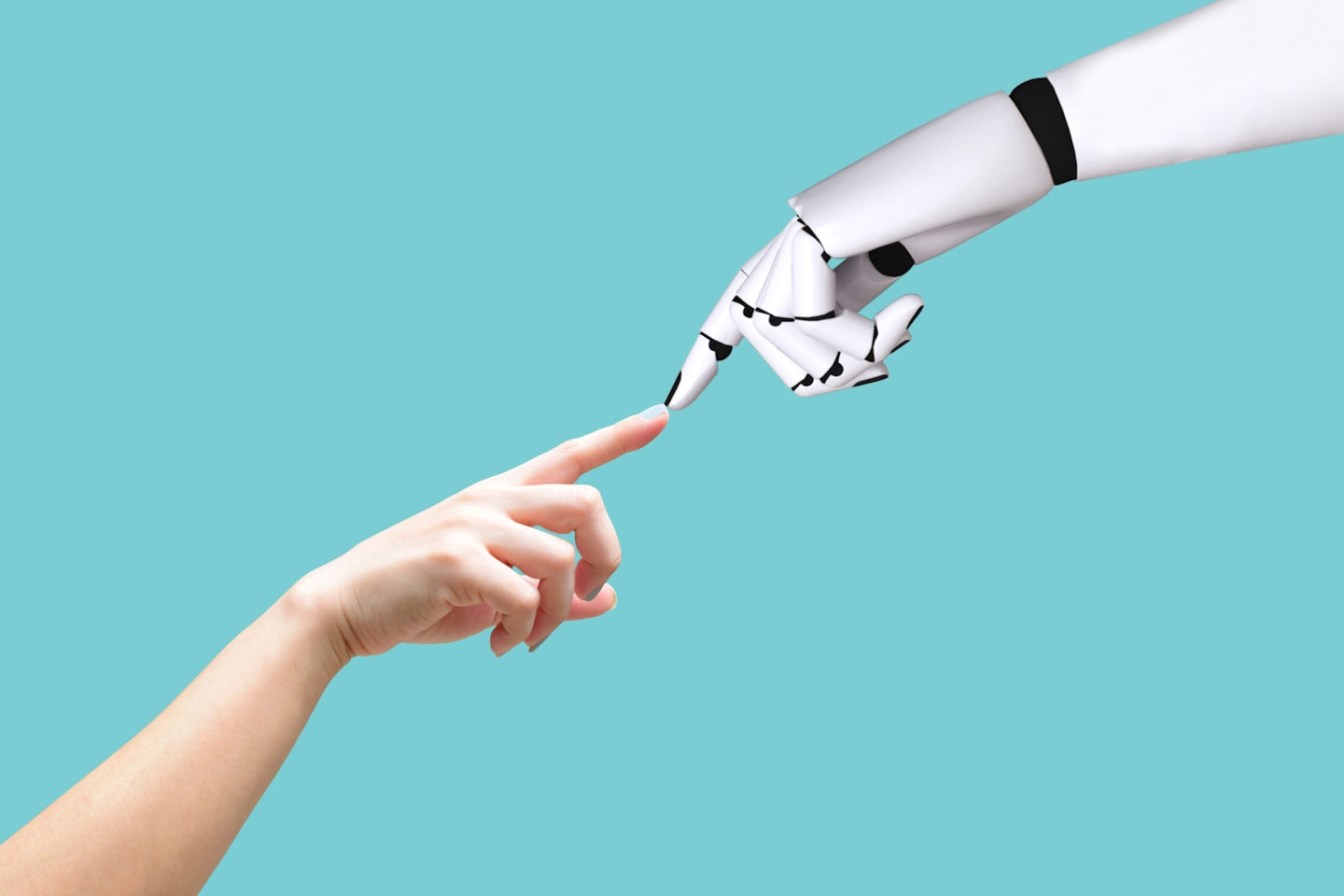Imagine someone who creates puzzles for a living: a crossword setter, say. You’re probably thinking about someone with reference books stacked around a cluttered desk, sharp pencils and sharper wits, and strong feelings about the exact components of a ploughman’s lunch.
Recent news that AI has been used via ChatGPT to invent, design, code and publish a new and addictive type of puzzle has therefore caused ripples of concern about just how much this new technology can do – and how much it could uproot the lives of puzzle creators and editors.
In truth, most of us puzzle editors these days aren’t so much like the stereotype above. We use computers and most of us are millennials, though we’re also big fans of Only Connect and Wordle. Nonetheless, all the recent news about the development of AI raises the question: is this just another useful aid to puzzle-setting, or will it make our input ultimately unnecessary?
Crossword roots
From the first crosswords (created by Arthur Wynne for the New York World in 1913), until relatively recently, the tools available to the setter were fairly basic and fairly similar. A dictionary was key of course, and a library of helpful tomes to consult, such as compilations of quotations, for example. Likewise, lists of items in various categories, an atlas, a Bible and of course a good thesaurus always came in handy. Beyond that, setters were largely on their own, and creating a crossword was as much a puzzle as solving one.

Crossword fever took over the US, and then Britain. In 1924, America’s B&O Railroad put dictionaries in the cars of its commuter trains, to help all those frustrated New York puzzlers. Around the same time, the British literary critic Edward Powys Mathers created a new and confounding slant on the pastime, inventing the cryptic crossword.
Though cryptic clues look like little more than gibberish to those not familiar with them, each clue is a complex interplay of rules. Double-meanings are rife, as are words indicating anagrams, letter omissions, particular letters to be used, or the exact placement of a word within the answer. If you see the word ‘flower’ in a cryptic clue, more often than not you should be thinking about rivers rather than shrubs – flow-er, get it? Crucially, each clue contains a ‘straight’ (that is, non-cryptic) definition of the answer, though it is often the compiler’s pleasure to obscure their meaning as much as possible.
In 1946, acclaimed crossword setter Alistair Ferguson Ritchie (who wrote under the pseudonym ‘Afrit’) honed some of the guiding principles of the art, in the name of clarity and fairness to the solver. Although, clarity only goes so far. As he put it, ‘You need not mean what you say, but you must say what you mean.’
A changing toolkit
Today’s cruciverbalists tread in the deep footsteps of giants like Afrit. Over 75 years later, the rules of crossword construction remain, though the tools used to make the puzzles have been updated somewhat – in some cases, at least.
Tom Johnson, over a 50-year career, has compiled cryptic crosswords for Take a Break Take a Crossword, The Financial Times and The Guardian, among many other publications.
“Back in the 70s I relied on pen, paper and an eraser, a good dictionary and maybe a thesaurus or a book of word lists, but the latter were few and far between in those days,” says Tom.
Now, he also makes use of a computer program as his ‘dependable friend’ to aid in compilation.
“[It] allows me to store all the clues I create and retain all the puzzles I have concocted, so I now have a huge collection of my puzzles readily available going back twenty years or so.”
Internet-based tools can also make creating or editing a crossword grid a much less thorny proposition. Sites such as Word Matcher generate possible answers based on the spaces available, and can speed up the process considerably.

While this program can take some of the difficulty out of making an interlocking grid of answers, the clues continue to be the preserve of the setter.
“I still refer to books as my main reference tools,” says Tom. “I use Wikipedia under sufferance!”
The human touch
The genius of these puzzles lies in their setters’ encyclopaedic knowledge of the rules at their disposal, and their ability to turn them to novel uses – often with wry humour or a nod at topical news. A computer may be able to generate a grid filled with solutions, but writing entertaining clues alongside them is another challenge altogether – and one that ChatGPT is not up to at all at present, based on my recent experimentation.
Jess Freeman, editor of Take a Break My Favourite Puzzles, also uses a blended method when compiling: “Many more puzzles are computer-generated now, and completely hand-made puzzles are rare. But computers are repetitive, so the creativity now lies more in the editing stage, composing good clues or improving the flow of solving a puzzle.”

While AI has made huge leaps and bounds in a short period, for now we still need humans to polish a puzzle to its best state – and to provide the stroke of genius. After all, ChatGPT has no appreciation of what we humans find fun: at the very least it requires someone with a kernel of an idea to feed prompts in, and to tweak and curate the results until a suitably pleasing outcome is reached.
And when AI does eventually take over? Well, we’ll probably have other things to worry about at that point… In the meantime, in the words of the computer HAL 9000 in 2001: A Space Odyssey: I’m sorry Dave, I’m afraid I can’t do that. Yet.
